Recruits for the war - Conscription orders by phone - how Ukraine is trying to find soldiers in new ways
There is a slight humming sound from the radio, then the voice of a paramedic can be heard: "We have three injured people, we'll bring them to you in a moment." The surgeon Vitali sighs exhaustedly, immediately puts on sterile gloves and goes into the garage, where three treatment tables are closely packed together. The small room is makeshift, with a generator powering a radiator and providing light. On the shelves are boxes of bandages, disinfectant and infusion bags. It is three o'clock in the morning. "We work around the clock, seven days a week," says the 28-year-old, who comes from western Ukraine. "Some days we treat a dozen wounded people here."
The stabilization point is located in a village around 30 kilometers from the front line, out of range of the Russian mortars and Grad rocket launchers. Photographer Stanislav Krupar was able to witness the work of the doctors for several days and document it for stern.
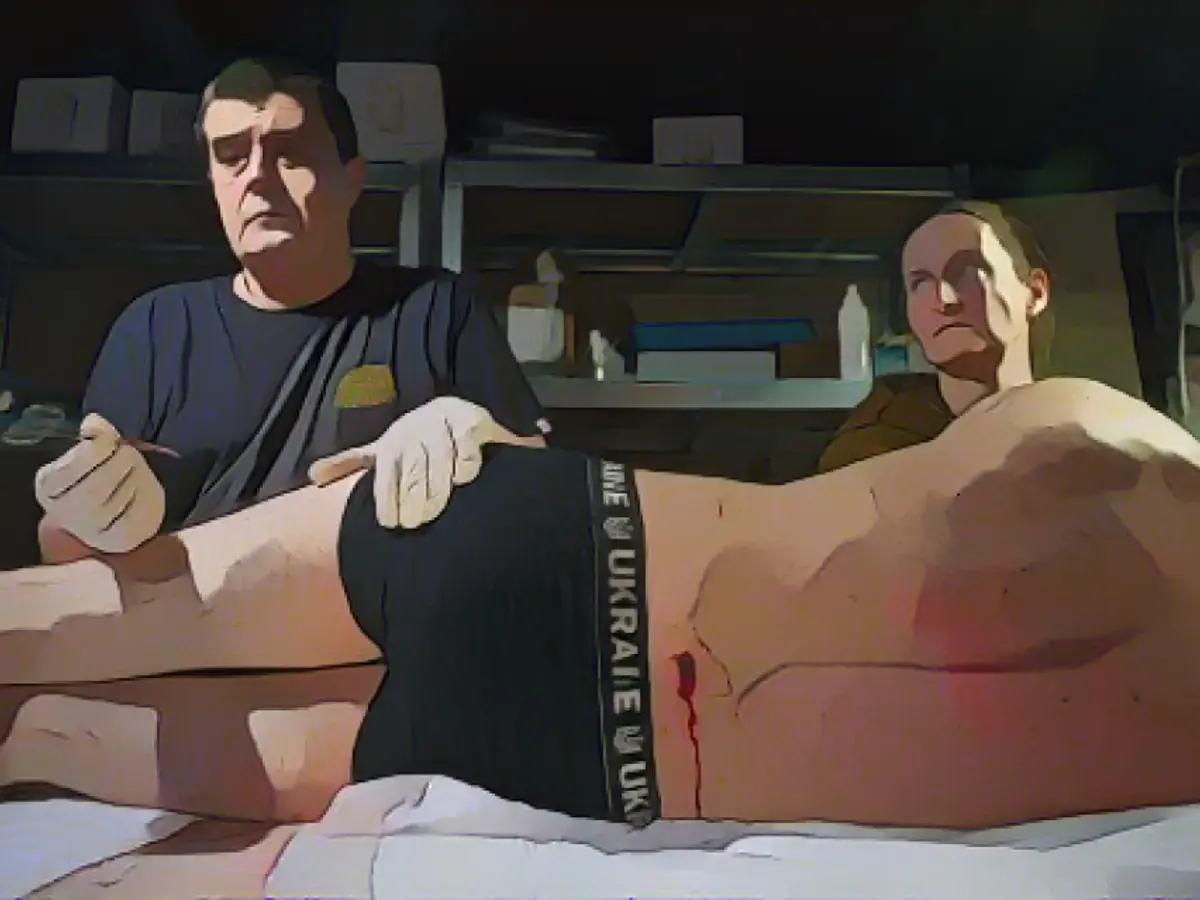
Of the four doctors at the stabilization point, three are volunteers who signed up as soon as the war broke out. They have already treated the wounded at the Battle of Bachmut this year. "All we can do here is stop the bleeding and treat the wounds in a makeshift manner so that the men can survive the transport to the hospital in Pokrovsk, 50 minutes away," says the frustrated doctor. He has no equipment to carry out major attacks.
Even on this day, on which photographer Krupar accompanies him, he can only stabilize the injured man in a makeshift manner. The soldier has been hit in the side, the shrapnel has torn a hole in the abdominal wall from which the uninjured organs are threatening to fall out. The paramedics cut open the man's uniform. With the help of his colleagues, Vitali applies a bandage, then the injured soldier is carried into a car and taken to hospital.
The country is slowly bleeding out
Since the beginning of October, the Russians have been attacking the Ukrainian positions in Avdiivka, the town north of Donetsk has become the new hotspot of the war. Despite the huge losses in men and material, the Kremlin commanders are driving their people to suicide attacks every day. But the Ukrainian defenders, who are being shot at with artillery, kamikaze drones and from airplanes, are also paying a high price in blood. They have entrenched themselves on the site of what was once Europe's largest coking plant and have so far beaten back the clearly numerically superior attackers.
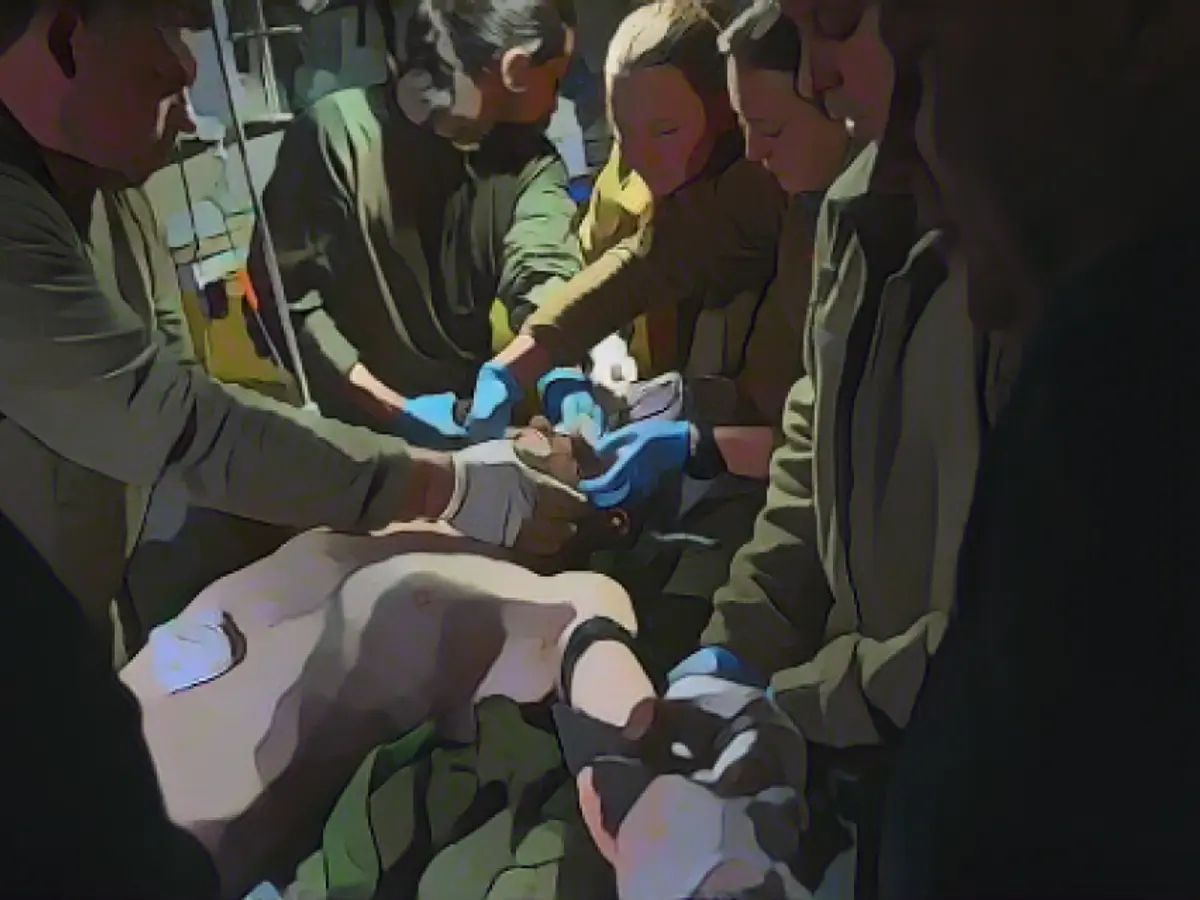
According to estimates by Western intelligence agencies, around 70,000 to 80,000 Ukrainian soldiers have been killed in action since the start of the war and at least 120,000 have been injured. The country is slowly bleeding to death. In the first months of the war, hundreds of thousands of Ukrainians volunteered to defend their homeland from the aggressor. But in the face of bone mills like Avdiivka, this heroic patriotism is fading. Today, there are fewer and fewer men and women who still want to fight with weapons.
Mobilization largely came to a standstill in the summer. Some conscription offices, which have still been called "war commissariats" since the Soviet era, reacted to this in the old Soviet way. Their staff picked up conscientious objectors on the streets and took them to the barracks by force. Videos of such actions, which are still circulating on the internet today, caused resentment among the population. On the other hand, there are documented cases of commanders of conscription offices accepting bribes to release certain people. President Volodymyr Zelensky was forced to dismiss all regional heads of the war commissariats. However, the new line-up lacks experience. The targets set for further mobilization are not being met.
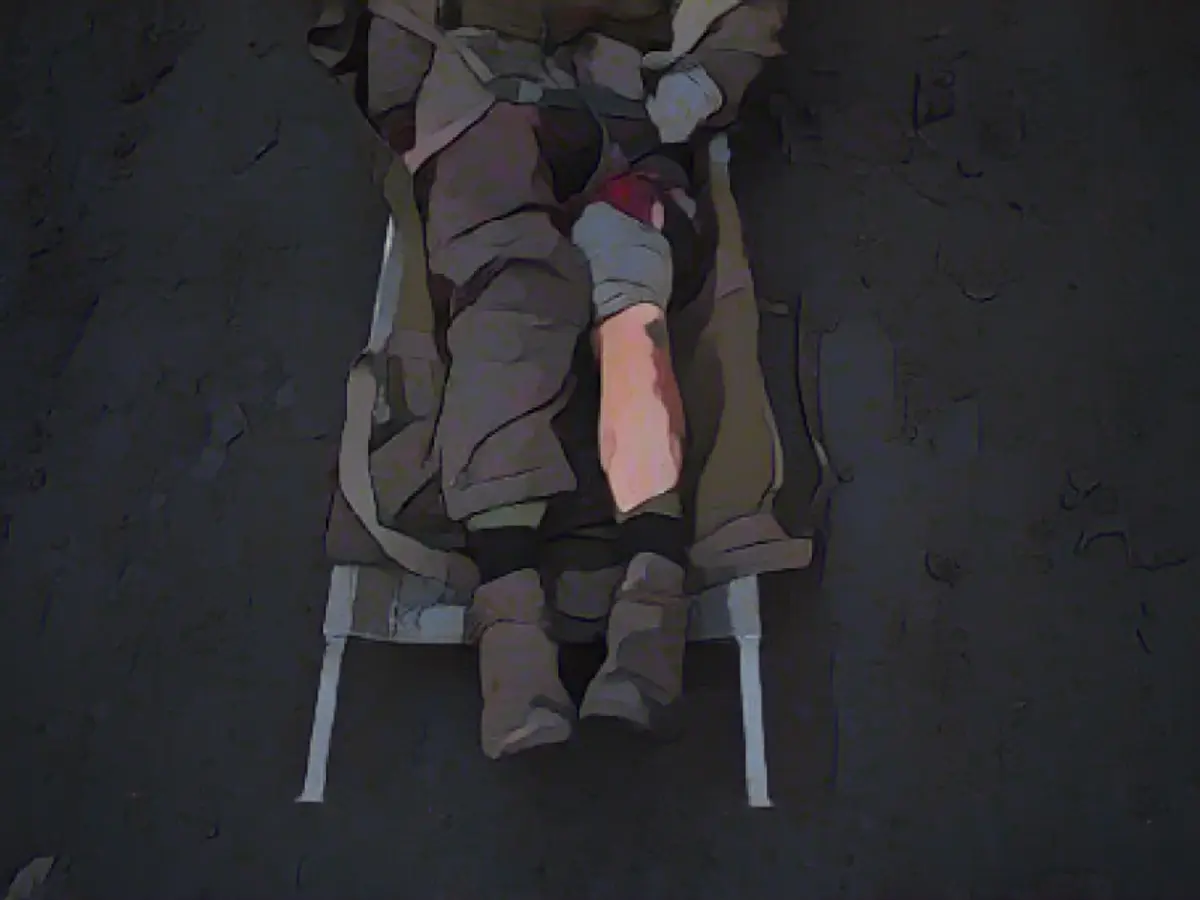
As a result, the Ukrainian army now has a major personnel problem. The supreme military commander, Valery Salushnyi, admits that training and recruiting troops has become a "serious challenge". After the invasion, the Ukrainian government imposed martial law, according to which all men between the ages of 18 and 60 can be mobilized unless they qualify for a deferment. Because of the war, however, millions of people have changed their place of residence and cannot be found by their draft boards. Now the Ministry of Defence, in cooperation with the Ministry of Digitization, has created a digital directory of conscripts and recruits - with their mobile phone numbers. Parliament is expected to pass a law before Christmas that will enable conscription by telephone.
Ukraine needs more people in uniform, and it needs them quickly. The number of new recruits is barely enough to guarantee the combat strength of the units, and certainly not enough to form reserve units to give the soldiers who have been fighting for 21 months a breather. This is now being loudly demanded by the soldiers' families at weekly rallies in Kiev. "Our soldiers are not slaves," complains Svitlana, the wife of a captain who is fighting on the eastern front. "According to the law, they have the right to be demobilized after 18 months of fighting." However, the situation at the front does not allow this.

In order to change this situation and complete the units, the Ukrainian government decided to change its conscription practices. Since last week, the Ministry of Defense has been working with two recruitment companies to fill the "vacancies". The government is talking about smart mobilization, which is intended to take away Ukrainians' fear of serving in the army. "Some people are afraid to die, afraid to shoot, but they can still be of use to the army," says Oleksiy Danilov, head of the National Security Council.
Smart mobilization aims to attract professionals from all professions to serve in the armed forces. After all, the army needs far more than infantrymen for the trenches. "For every combat soldier, there are usually three soldiers in supply behind the front line," says Yaroslava Kashka, who is responsible for recruitment at the Azov Brigade. "For us, for example, the soldiers who actually fight only make up 40 percent of the total."
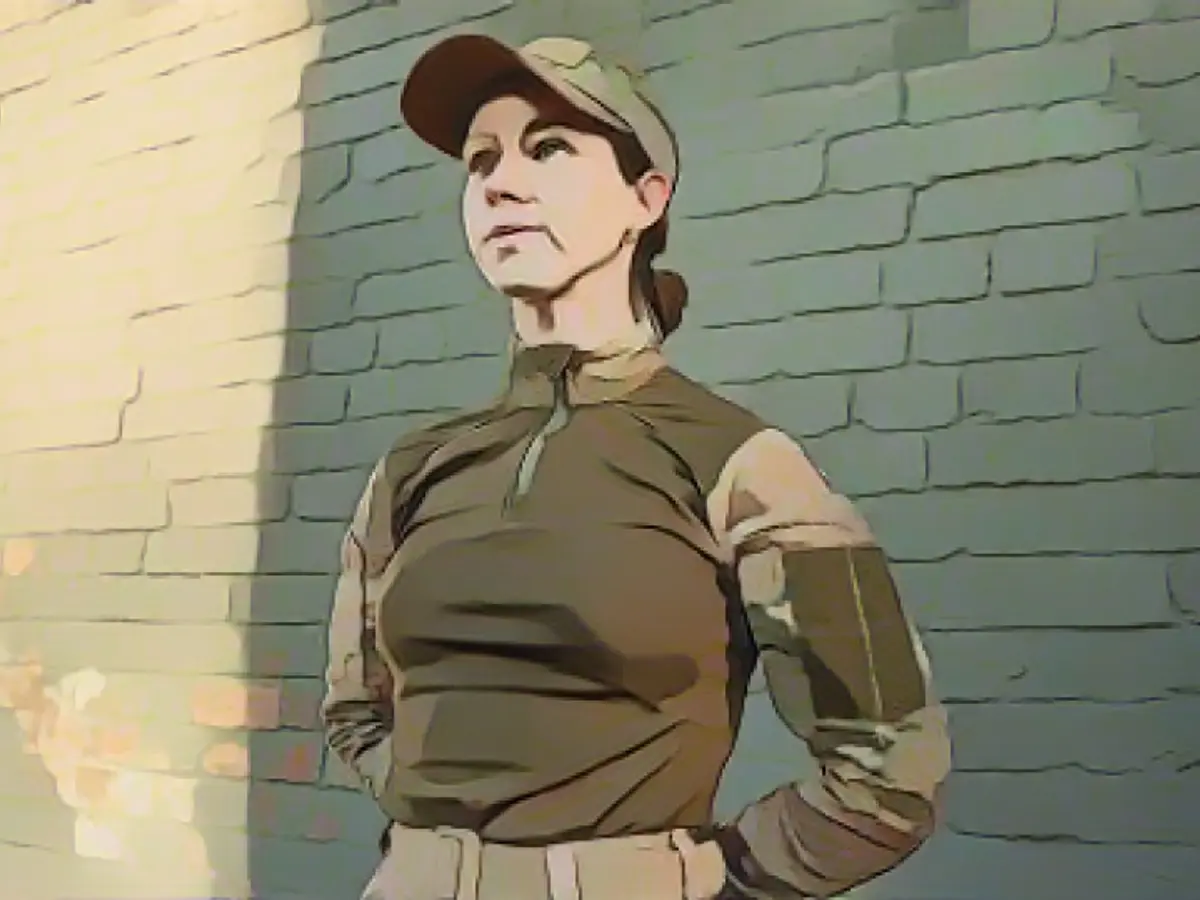
The armed forces are looking for specialist personnel from 50 different professions, accountants, mechanics, cooks, drivers and doctors. "If you want to defend your homeland, you don't necessarily have to take up arms. They can continue to work in their profession," says Artur Mikhno, Managing Director of Ukraine's largest employment agency work.ua.
The various units of the armed forces can place their job offers on the platform, as can commercial enterprises. Anyone who is interested applies online and is then contacted by an army recruiter. Anyone who meets the professional requirements and passes a health check must complete basic weapons training and a first aid course. Then they can start work in the unit of their choice. "The employment contract is concluded for three years, but can be extended by the army if the war is not yet over," says Mikhno.

Voluntary enlistment has many advantages over conscription. The recruit himself chooses the unit he wants to serve in, and often also the location. He knows who commands the unit, what it has done so far and who has served there. "He knows what kind of treatment he can expect there," says Mikno. "Trust in the commander plays an important role in the decision." Those who are called up, on the other hand, never know where they will be sent by the war commissariat.
For Ukraine, mobilization is a question of survival. The government is therefore also trying to create more financial incentives. Soldiers' salaries, especially when they take part in combat operations, amount to the equivalent of up to 3,000 euros, depending on rank and specialization. The city of Kiev decided to pay a bonus of 800 euros to all new recruits from the capital who were drafted after December 1, 2023.
But above all, the army needs doctors
The headhunting agency LobbyX, which has also entered into a partnership with the Ministry of Defense, began working with military units a year ago. "It's mainly IT engineers who show an interest in army jobs," says company founder Vladislav Griezev. "Jobs as drone pilots are also very popular. But we also have a lot of people applying for combat positions in the infantry."
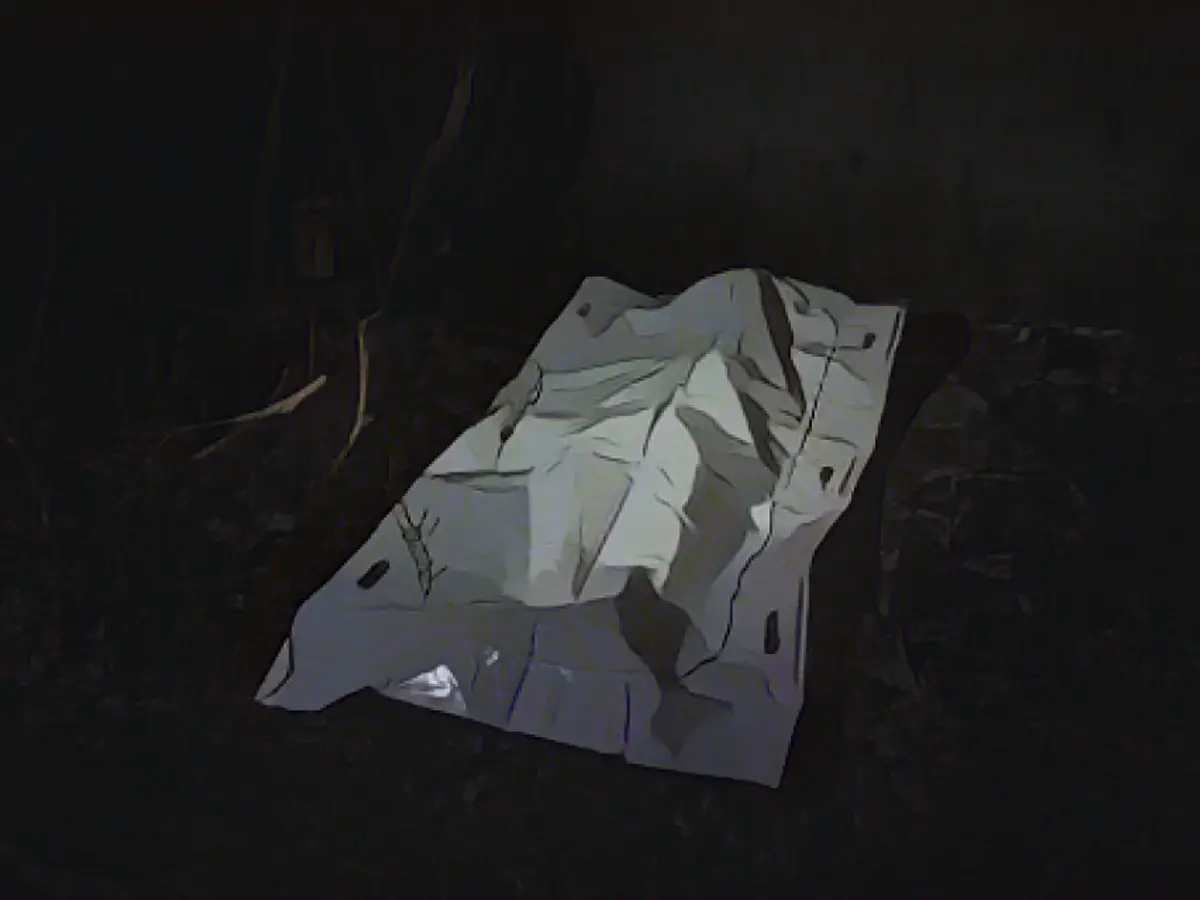
Above all, however, the army needs doctors from various disciplines, as Vitali and his colleagues at the stabilization point near Avdiivka are at the end of their tether. "We were going to take ten days off in the fall when the Russians started attacking Avdiivka," says the surgeon. "Now none of us can leave." At the beginning of the war, the Ukrainians had an equipment advantage, at least when it came to drones. Now the enemy has a lot more of them. "They are always in the air, most of our wounded are victims of drone attacks," complains the doctor.
The Russian soldiers stubbornly run towards the Ukrainian positions and are killed by the hundreds. "The commanders are driving their people to certain death and at the same time flying their drones," says a Ukrainian soldier. "They know that we are shooting down the infantry, but their drones can see our positions." The Ukrainian is not surprised by this man-killing tactic. "What else can you expect from the Russian commanders?"
Read also:
- Year of climate records: extreme is the new normal
- Precautionary arrests show Islamist terror threat
- SPD rules out budget resolution before the end of the year
- Numerous oil, gas and coal lobbyists at climate conference
- Vitali, the surgeon from western Ukraine, has been treating wounded soldiers in a makeshift stabilization point for several days.
- The injured soldier from the front line near Donetsk was stabilized in a makeshift manner before being driven to the hospital in Pokrovsk in a car.
- In western Ukraine, there has been a decrease in the number of men and women who want to join the fight against the Russian aggression.
- The Ukrainian army is facing a major personnel problem due to the ongoing war and is looking for specialists from 50 different professions to join their ranks.
- The Russian soldiers are targeted by Ukrainian drone attacks, leading to many casualties among their ranks.
- The Kremlin is pushing their soldiers towards suicide attacks every day, despite the huge losses in men and material.
Source: www.stern.de








